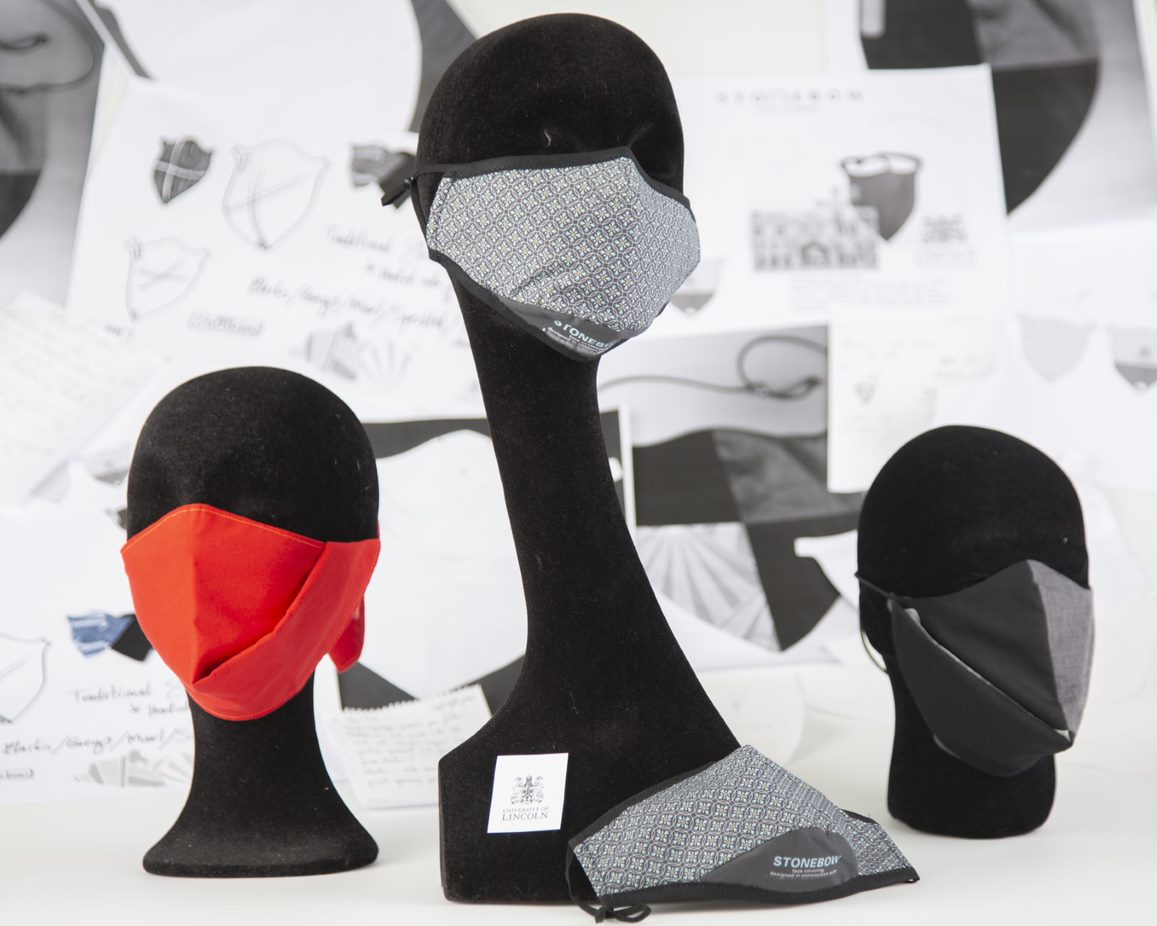Experts Discover “Virus Velcro” Covid-Capturing Face Mask Filter
25 November 2021
Scientists have developed a new and affordable formulation to drastically increase the effectiveness of face covering filters at trapping coronavirus particles – retaining up to 99.6% of the virus. Experts at the University of Lincoln, UK, are hailing the discovery as a ‘breakthrough moment’. The results have already been tested to a recognised international standard by an independent […]

Scientists have developed a new and affordable formulation to drastically increase the effectiveness of face covering filters at trapping coronavirus particles – retaining up to 99.6% of the virus.
Experts at the University of Lincoln, UK, are hailing the discovery as a ‘breakthrough moment’. The results have already been tested to a recognised international standard by an independent standards laboratory and researchers are currently sourcing development partners.
At the beginning of the pandemic, the researchers assembled a supply chain partnership to produce preventative measures against the virus. Their work was supported by the University, who provided key worker access to research laboratories during lockdown and funded the work through the Impact Accelerator Funding Scheme.
Associate Professor Nick Tucker, a specialist in materials and manufacturing at the University of Lincoln’s School of Engineering, who led the research said: “As restrictions are eased and life is gradually returning to pre-pandemic normality, these filters could prove crucial in preventing further rising rates of coronavirus.
“We knew that to make a successful contribution in the struggle against the pandemic we needed to assemble a complete supply chain for our discoveries and all the supply chain members need to be fully involved from the start.
“The connection between design, science and engineering is important too – it is no good inventing a formulation that is too expensive or too difficult to make.”
Seaweed extract Fucoidan sticks and immobilises the virus on to a surface. The coronavirus defying properties of Fucoidan were originally identified in the science journal, Nature, during the early phase of the pandemic. However, Fucoidan is expensive and difficult to obtain in the UK so the team developed formulae with similar outcomes, using cheaper and more readily available materials.
These formulas were inserted into biodegradable filters, tested for permeability and sent to an independent laboratory to be tested for efficacy in capturing coronavirus.
When treated with the formulation, filter fibres act like “virus velcro” – results show that if an airborne coronavirus contacts the surface of the filter, it will stick because of the similarity to the human tissue surface that the virus would normally attach to. The filter formula therefore increases the efficiency of trapping the virus without making the mask uncomfortable to wear or more difficult to breathe through.
The University’s Fashion Design department is now working with a local company, Countryside Art, to produce a commercial face covering incorporating the filter material, based on an award-winning student design. The team are also keen to explore further opportunities with a range of partners in this area.
The Impact Accelerator Funding Scheme is an internal fund born from the Higher Education Investment Fund (HEIF) – allocated to the University annually by Research England. It is designed to enable a range of knowledge exchange activities that result in economic and social impact. The funding provides incentives for the University to work with businesses, public/third sector organisations, community bodies and the wider public.
